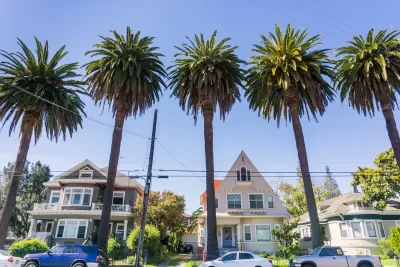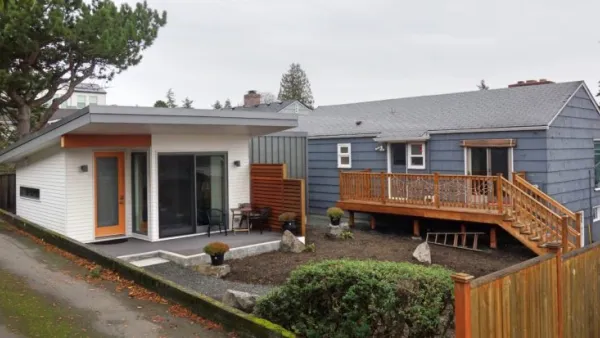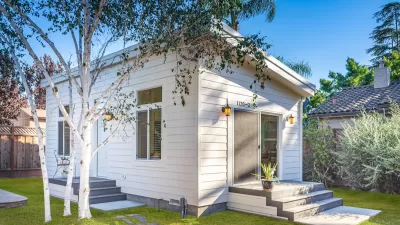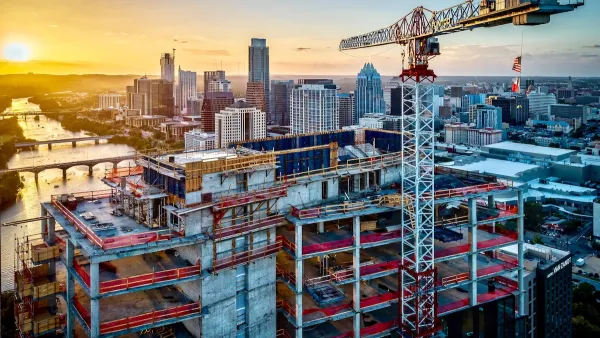A new policy could help boost the supply of smaller, more affordable ‘starter homes’ in the first California city to legalize the sale of ADUs.

The city of San Jose became the first in California to allow the sale of accessory dwelling units (ADUs) as condos, which supporters say will create a new supply of ‘starter homes’ for households looking to become homeowners. In a city where just 6 percent of residential land is zoned for multifamily housing, the policy could have a major impact on San Jose’s housing supply.
As Vicente Vera explains in San Jose Spotlight, the change was made possible by AB 1033, signed by Governor Gavin Newsom last year, which lets municipalities set their own rules on ADU sales.“With more than 1,400 new ADUs built since 2019 and thousands more in development across San Jose, city leaders hope to alleviate the affordable housing crisis with the help of existing homeowners.”
According to Rafael Perez, board president of the affordable housing advocacy nonprofit Casita Coalition, ADU condos typically sell for 40 to 60 percent of the average home price in their area. However, Todd Langton, executive director of homelessness nonprofit Agape Silicon Valley expressed concern that institutional buyers could take advantage of the law and suggested policies to prevent purchases by investors.
According to an article in The Real Deal, “Unlike the controversial Senate Bill 9, which allows homeowners to create two separate lots, a homeowner using AB 1033 must set up a homeowners association for the main house and ADU “condo.” Governing documents would determine how common areas, such as a shared yard, would be maintained and fixed.”
FULL STORY: San Jose ADU law brings back starter homes

Planetizen Federal Action Tracker
A weekly monitor of how Trump’s orders and actions are impacting planners and planning in America.

Chicago’s Ghost Rails
Just beneath the surface of the modern city lie the remnants of its expansive early 20th-century streetcar system.

San Antonio and Austin are Fusing Into one Massive Megaregion
The region spanning the two central Texas cities is growing fast, posing challenges for local infrastructure and water supplies.

Since Zion's Shuttles Went Electric “The Smog is Gone”
Visitors to Zion National Park can enjoy the canyon via the nation’s first fully electric park shuttle system.

Trump Distributing DOT Safety Funds at 1/10 Rate of Biden
Funds for Safe Streets and other transportation safety and equity programs are being held up by administrative reviews and conflicts with the Trump administration’s priorities.

German Cities Subsidize Taxis for Women Amid Wave of Violence
Free or low-cost taxi rides can help women navigate cities more safely, but critics say the programs don't address the root causes of violence against women.
Urban Design for Planners 1: Software Tools
This six-course series explores essential urban design concepts using open source software and equips planners with the tools they need to participate fully in the urban design process.
Planning for Universal Design
Learn the tools for implementing Universal Design in planning regulations.
planning NEXT
Appalachian Highlands Housing Partners
Mpact (founded as Rail~Volution)
City of Camden Redevelopment Agency
City of Astoria
City of Portland
City of Laramie





























